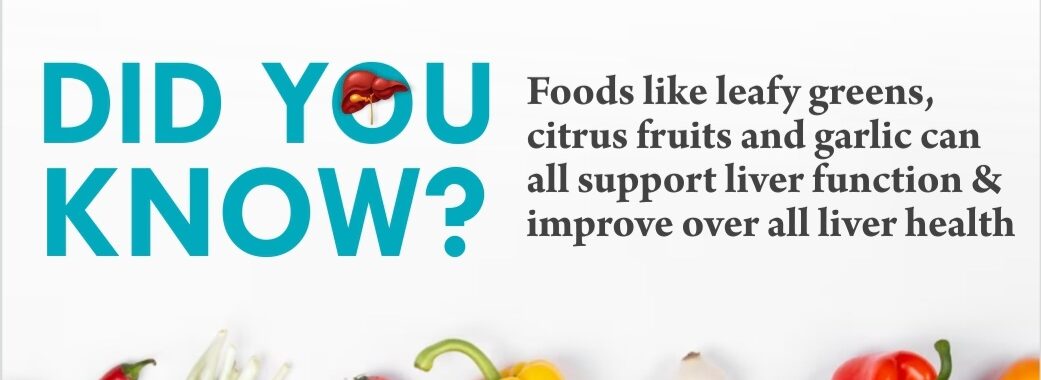A popular quote mentions that “Let food be thy medicine, thy medicine shall be thy food.” This saying is actually producing the facts because food is the best medicine for a healthy mind, body and soul. A strong and good health requires healthy food that includes a balanced diet. so, to acquire a good health there is a simple formula that says eat what you actually don’t want or that don’t appeal you because a healthy food is a bank account that stores all healthy things for you.
To keep you liver in good health, it requires a nutritious and balanced diet. You liver is a crucial organ for processing nutrients and filtering hazardous compounds from the blood. To keep your liver working properly, you need to take care of your health. Read this blog to know more about how eating healthy food affects our liver functioning.
Why should we have a healthy diet?
Our body absorbs food nutrients such as carbs, fat, and protein into the bloodstream. These nutrients are taken to the liver, which metabolizes them before storing or using them to support critical physiological operations.
Furthermore, the liver cleanses potentially toxic compounds. Liver also purifies any potential toxin from our body
A well-balanced diet, commonly characterized as low in sugar and fat and high in fiber.
Selecting a diet from diverse foods is critical to ensuring the body receives all needed nutrients. Below are some of the food to avoid and eat to maintain your liver health.
What must be avoided to keep the liver healthy?
Fried/fast foods are heavy in fat and sugar and harm liver function. Furthermore, eating high-salt foods can cause fluid buildup and inflammation in the liver.
In severe liver injury, the organ cannot digest proteins effectively, resulting in a buildup of harmful byproducts in the blood. Reducing protein and boosting carbohydrate intake may be advantageous in such circumstances.
Because the liver is the primary organ for alcohol detoxification, limiting or restricting the intake of alcohol to one drink per day for women and two drinks per day for men can help to prevent liver damage.
Coffee can help reduce abnormal liver enzymes.
Coffee daily may help prevent your liver against MAFLD. Caffeine appears to reduce the amount of aberrant liver enzymes in persons who are predisposed to liver disease.
Vegetables to prevent fat accumulation
Compounds present in spinach and various other leafy greens may aid in treating fatty liver disease. This could be because cooking spinach (and other leafy greens) may lower polyphenolic content and antioxidant activity.
Reduce your sugar consumption
Sugar is bad for your overall health and liver. This sugar will be changed into fat, harming your body. In the future, you could develop fatty liver disease. So, do your liver justice and limit your intake of sweets to once a week.
Green tea
It’s loaded with catechins, an antioxidant. According to Research, it could protect against certain types of cancer, particularly liver cancer. You’ll get additional catechins if you make your tea and drink it warm. Iced and ready-to-drink has substantially lower amounts.
Grapefruit
Grapefruit provides antioxidants that support the liver. Grapefruit has two major antioxidants: naringenin and naringin.
Grapefruit is recognized to have two defensive effects: decreasing inflammation and preserving cells.
Fish can help lower inflammation and fat levels.
Omega-3 fatty acids are rich in fatty fish like salmon, sardines, tuna, and trout. According to Research, omega-3 supplementation may benefit patients with MAFLD by decreasing liver fat, increasing beneficial HDL cholesterol, and reducing the amount of triglycerides.
Additional treatment options for fatty liver disease
In addition to altering your food, the following lifestyle modifications can help strengthen your liver health:
- Get moving. Exercise and a healthy diet may assist you to lose weight while controlling your liver illness. Aim for thirty minutes of aerobic activity.
- Lower lipid levels in the blood. Reduce your saturated fat and sugar intake to help maintain your cholesterol levels in check. If eating and exercising aren’t cutting it, talk to your healthcare provider about medication.
- Maintain diabetes control. Diabetes and fatty liver diseases are frequently found together. Both disorders can be managed with diet and exercise. If your blood sugar level remains high, a doctor may give medications to bring it down.
Conclusion
If you’re suffering from MAFLD, some lifestyle and nutritional changes may reduce the risk of causing severe damage. The best thing is to improve liver function, minimize illness risk, and support healthy weight managment is to eat a well-balanced, nutritional diet high in proteins, fiber, and good fats.
If you have MAFLD or are concerned that you might have it, consult with a trusted healthcare provider to develop a treatment plan involving dietary adjustments and lifestyle improvements.

